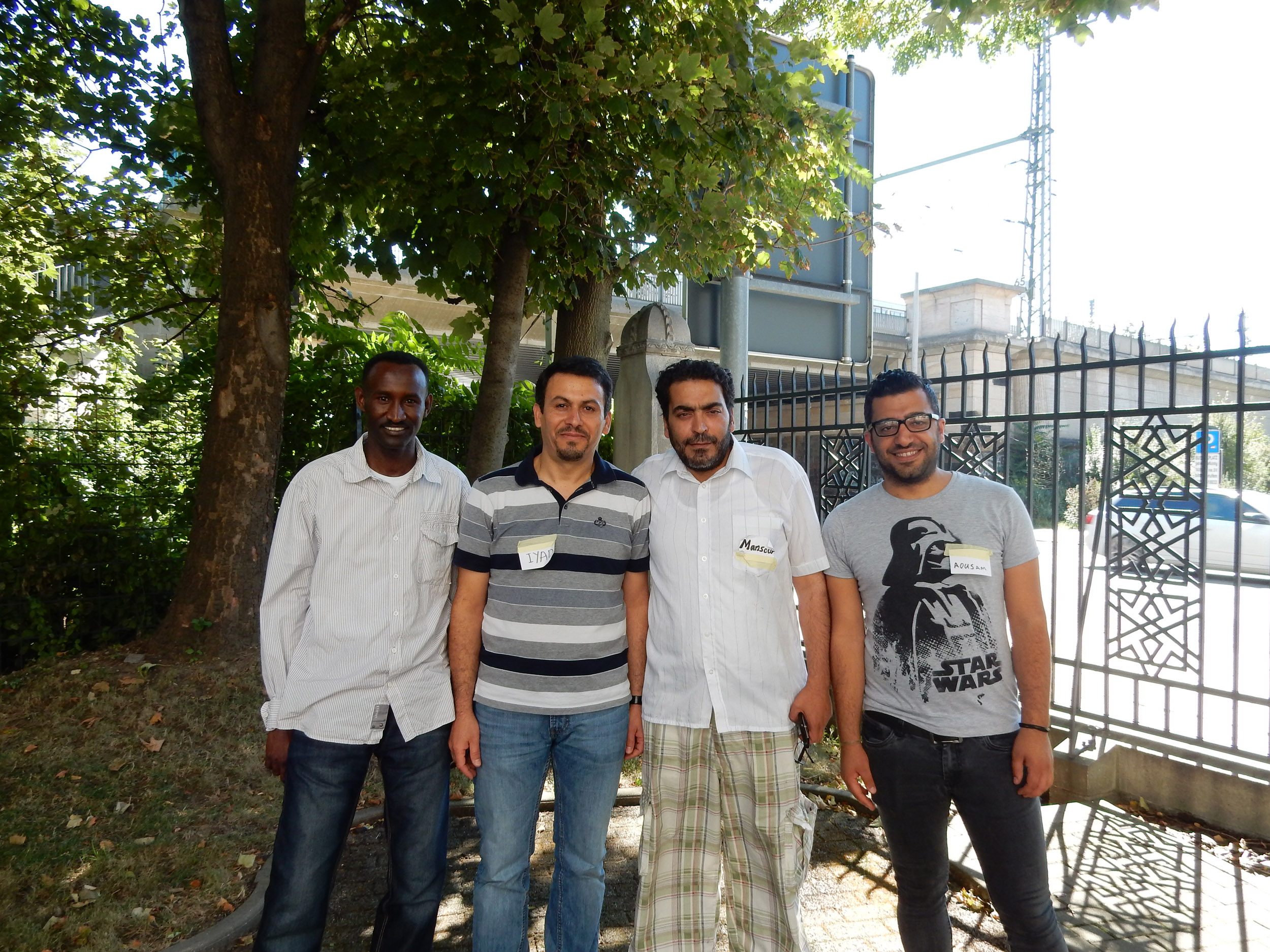Amongst other things, the 21 participants dealt with the guidance of group discussions, strategies for coping with hostility and discrimination and the communication with and within Saxon communes.
One of the participants is Iyad Mihaisen from Palestine. He is a volunteer in the integration department of northern Saxony. He is certain that the knowledge acquired during the workshop will help him with his work.
Mansour Khalifeh, who studied medicine in Syria and lives in Germany since 1998, supports refugees concerning their health problems. In the future he wants to help traumatized people with their arrival in Germany to make them feel less strange. He thinks of the course as an enrichment because he has come to know how to cope with difficult situations and avoid points of contention.
Aousam Lila studied economic sciences and was employed by a bank in Syria prior to the war. In Germany he wants to support newly arrived refugees who do not yet speak German.
During the second part of the workshop, which takes place in early September, the participants learn how to put the acquired knowledge into practice.
The aim of the course is to train the participants as multipliers. Thus they can help other newly arrived people in various social fields, since arriving in Germany is difficult on many levels. The lack of language skills, differences to their home countries and the consequences of traumatic experience of war and escape are only a few of the many barriers refugees and immigrants come across in their daily life.
Mansour Khalifeh, der in Syrien Medizin studiert hat und seit 1998 in Deutschland lebt, unterstützt bereits Geflüchtete bei gesundheitlichen Problemen. Er möchte in Zukunft traumatisierten Menschen bei ihrer Ankunft in Deutschland helfen, so dass sie sich nicht völlig fremd fühlen. Den Kurs betrachtet er als Bereicherung, da er auch lerne mit kritischen Situationen umzugehen und Streitpunkte zu vermeiden.
Aousam Lila hat vor dem Krieg in Syrien Wirtschaftswissenschaften studiert und für eine Bank gearbeitet. In Deutschland will er neuankommende Geflüchtete, die noch kein Deutsch sprechen unterstützen.
Im zweiten Teil des Kurses, der Anfang September stattfindet, erfahren die Teilnehmenden, wie sie die erlernte Theorie in die Praxis umsetzen können.
Ziel des Kurses ist es, die Teilnehmenden zu Mulitplikatorinnen und Mulitplikatoren zu schulen, damit sie anderen Neuankommenden in verschiedenen sozialen Bereichen weiter helfen. Denn das Ankommen in Deutschland ist auf vielen Ebenen schwierig. Fehlende Sprachkenntnisse, Unterschiede zum Heimatland













